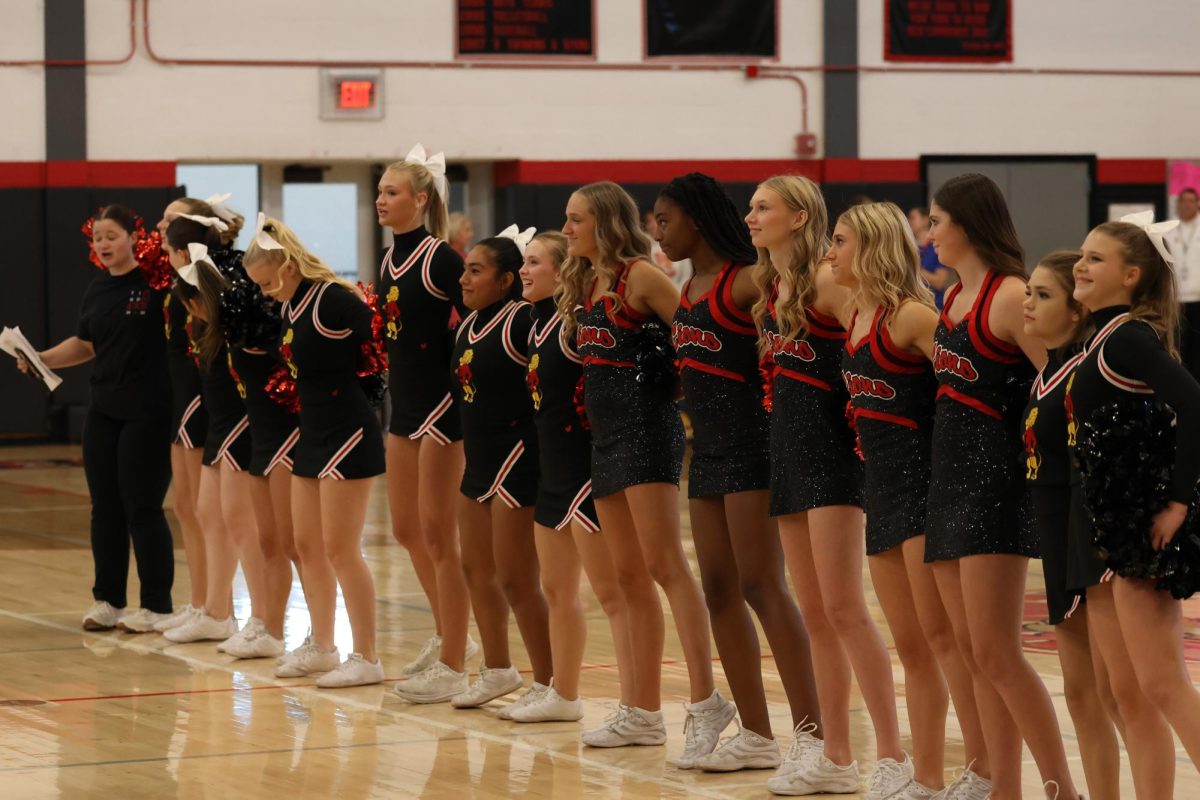Virginity isn’t a state of body
The word virginity is used in hurtful, oppressive ways, and is not necessary
March 13, 2014
Ever since my parents gave me the sex talk when I was 7 years old, I’ve been accustomed to the term “virginity.”
Granted, I also thought that kissing, hugging and holding hands counted as sex, but my definition for virginity at 7 is just as incorrect as society defines and uses virginity today.
At first glance, many people believe that virginity is an easy concept to understand.
However, among the endless ways to define virginity, hurtful heteronormative standards, trans-exclusionary concepts, and religious beliefs are tied into the concept of virginity.
Merriam-Webster dictionary defines virginity as, “The state of never having had sexual intercourse.”
For many, this definition consists of vaginal intercourse between heterosexual and traditionally male and female people.
“It’s a very heterosexist perspective, which refers mostly to sexual intercourse between a male and a female,” said Dennis Dailey, a sex therapist and retired University of Kansas professor. “I think for most people that is what it’s all about so you can do almost anything else sexually, and it doesn’t dare on whether you are or are not a virgin.”
One of the problems with virginity is that how virginity is defined, the definition often only includes heterosexual people and often disregards if someone’s gender traditionally aligns with the gender they are assigned at birth.
Over the years, a female person’s virginity has been the main area of concern when virginity is a part of the discussion.
“The concept as it exists in our society is a profoundly sexist concept,” Dailey said. “I believe that it is aimed primarily at women. For females, virginity is much more important in our culture than male virginity.”
Often, they face a warped belief that hymenal breakage and bleeding is supposed to occur once they have had vaginal intercourse for the first time.
This is violently referred to as popping the cherry.
In most cases you do not break a hymen from intercourse. In fact, you do not break a hymen at all.
It is rare for a female person to have a full hymenal covering, thus most people can not break their hymen.
The hymen can only be stretched or maybe ripped, which is not limited to penetration. The hymen can also be stretched from athletics, horseback riding or any similar activities.
Often bleeding after penetration, is most likely the cause of lack of lubrication during sex, or the person being tense and nervous during intercourse, causing vaginal walls to constrict or cause friction.
Upon review, the usage of the term “virginity” and “virgin” seems to be damaging and unnecessary in multiple ways when used socially and medically.
It seems as if the only place that the term virginity should be used is when it comes to religious beliefs.
“I believe the Bible completely, and I am going to believe that completely that marriage should be between a man and a woman, and that you should only have sex when you are married,” senior Grace Hoy said. “That is what I was taught and was raised to believe.”
But even used religiously, virginity has the power to put a crushing amount of shame and guilt on a person’s mentality if they do not refrain from having sex, because it is seen as a sin.
Even if we take religion out of the equation, the usage of virginity has deep roots in shaming and guilting people in various ways.
“We know that human beings are designed to reproduce,” Dailey said. “We know how that happens, so the act of sexual intercourse does not result in any physical change to the body.”
That makes virginity a concept that is formulated of only the mental parts of having sex. Yet, having sex is probably one of the main things that humans do right beside breathing and eating. Having sex is what we do. So the amount of stigma and the taboo attached to sex is purposeless.
“I think that the concept is primarily used to oppress mostly young people,” Dailey said. “The primary target is people your age. I think it is, as strange as it sounds, a social conspiracy, to socially control women, and they do it by creating fear, negative attitudes toward body, shame and guilt.”
For a long time, a woman’s chastity has been an issue of concern, whether it be an arranged marriage or if a woman is openly expressive of her sexuality.
“I think it just comes from a patriarchal society,” junior Emily Laughlin said. “The man is worth so much more that there’s only so much a woman can hold on to make herself worth something. That’s definitely changing, which is awesome.”
Not to say that men are not pressured by the concept of virginity, as well. It is often used to pressure men in a reversed way. They are supposed to have sex frequently and carefree, with giving no regard to their partner.
However, I do think that there is more emphasis on a woman’s virginity than a man’s.
The concept of virginity is a misconstrued, wrongly exclusive, damaging and an unneeded concept.
“I don’t think that it’s a big deal,” Laughlin said. “I think that we’re teenagers, we have hormones. But I think that sex with somebody you love is sacred. But it’s a physical act, and it’s a human act.”
Now, the 16 year old version of me has a better grasp on the concept of virginity. However, the continual hetero-centric concepts, sexism, misogyny, shame and erasure of trans identities taxed on with the word forces me to question its usefulness.














